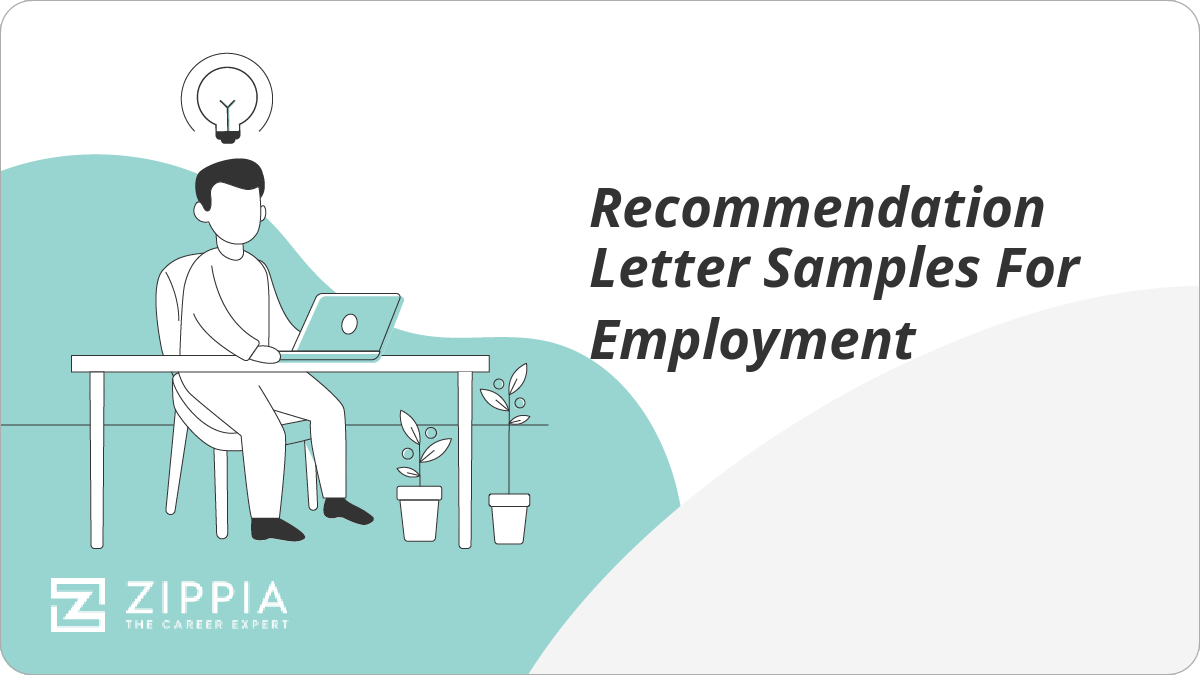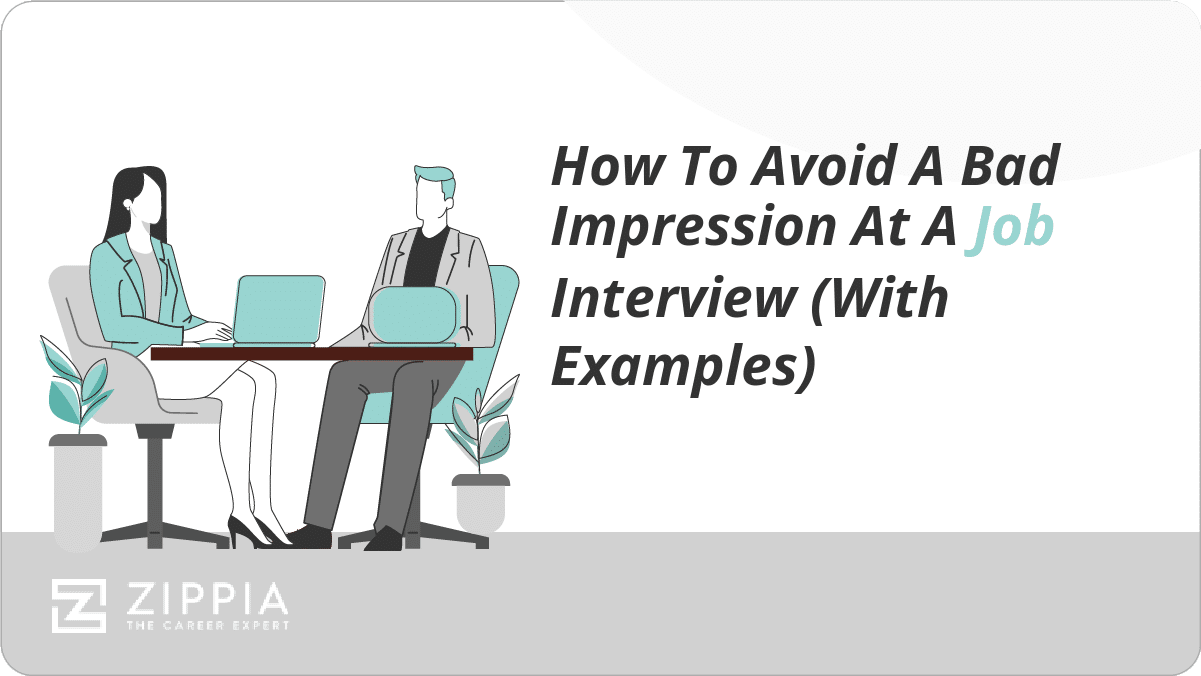- Common Questions
- Interview Questions
- How To Answer Tell Me About Yourself?
- Elevator Pitch
- Where Do You See Yourself In 5 Years?
- What Are Your Career Goals?
- When Can You Start?
- How Do You Define Success?
- Describe Your Work Ethic
- Where Are Your Current Duties?
- What Are Your Learning Goals?
- Intrinsic Vs Extrinsic Motivation
- What Is Your Desired Salary?
- What Makes You Unique?
- Why Are You The Best Person For This Job?
- Reasons For Termination
- What Are Your Work Values
- How To Make A Hard Decision?
- What Are You Most Proud Of?
- Personal Code Of Ethics
- Problem Solving Interview Questions
- Taking Initiative Example
- How Do You Prioritize Your Work
- Explain Gaps In Employment
- Most Rewarding College Experience
- What Is Your Work Style
- Tell Me About A Time When You Made A Mistake On The Job
- Tell Me About Gaps In Employment
- What Are You Passionate About
- What Skills Would You Bring To The Job
- Who Is Your Mentor?
- Tell Me About Gaps In Employment
- How To Answer Tell Me About A Time You Disagreed With Your Boss
- How To Answer Common Screening Questions
- How Do You Handle Stress
- Are You Willing To Travel?
- Do You Work Well With Others?
- Why Do You Want To Work Here?
- What Is Your Greatest Weakness?
- Where Else Are You Interviewing?
- Tell Me About A Time You Failed
- How Do You Like To Be Managed?
- Do You Have Any Questions For Me?
- What Gets You Up In The Morning?
- What Do You Know About Our Company?
- What Is Your Greatest Strength?
- What Is Your Dream Job?
- What Is Your Ideal Work Environment?
- Types Of Questions
- Situational Interview Questions
- Promotion Interview Questions
- Internal Interview Questions
- Open Ended Interview Questions
- Tough Interview Questions
- Leadership Interview Questions
- Teamwork Interview Questions
- Interview Questions About Communication
- Personality Interview Questions
- Internship Interview Questions
- Ice Breaker Questions
- Recruiter Interview Questions
- Brain Teaser Interview Questions
- Group Interview Questions
- Competency Based Interview Question
- Grad School Interview Questions
- Scrum Interview Questions
- Excel Interview Questions
- Common Phone Interview Questions And Answers
- Job Specific Questions
- Why Did You Choose Nursing?
- Why Do You Want To Be A Teacher?
- Why Do You Want To Be A Doctor?
- Why Do You Want To Be A Police Officer?
- Police Officer Interview Questions
- Why Do You Want To Be An Accountant?
- Sales Interview Questions
- Interview Questions For Managers
- Retail Interview Questions
- Teacher Interview Questions
- Accounting Interview Questions
- Teaching Philosophy Examples
- Management Philosophy Examples
- Leadership Philosophy
- What Does Customer Service Mean To You
Find a Job You Really Want In
- How to Prepare an Answer to “What’s Your Ideal Work Environment?”
- The Types of Work Environments to Consider When Answering This Interview Question
- Example Answers to “What’s Your Ideal Work Environment”
- 3 Tips for Answering Questions About Work Environment
- Mistakes to Avoid: What Not to Say to “What’s Your Ideal Work Environment”
- Expert Tip
- “What’s Your Ideal Work Environment” FAQ
- Final Thoughts
- Sign Up For More Advice and Jobs
While in an interview, you might hear “What’s your ideal work environment?” It’s one of the most common interview questions that you can expect to run into.
Knowing what a company’s work environment or culture is will help you determine if you’d be a good fit and if you’d be happy working for the company — or if you’d be completely miserable!
Here’s everything you need to know about how to answer interview questions about your ideal work environment.
How to Prepare an Answer to “What’s Your Ideal Work Environment?”
The best way to prepare to answer questions about work environments is to do your homework and learn about the company.
Here’s what you can do to figure out just what kind of work environment a company has:
-
Check out their “about us” section or mission statement. A lot of companies will give insight into their environment on their website. Their website might straightforwardly say that they have a fast-paced environment, or they might imply that they have a social culture by saying that they “foster strong employee relationships.”
Sometimes, you just have to read between the lines.
-
Ask a company contact. If you know someone who works for the company, reach out to them and ask their opinion on the company culture or their reputation.
-
Ask the interviewer. If you just can’t seem to find any information about the company’s work environment, it’s okay to just ask their interviewer and base your answer on what they tell you.
Then you can offer examples of how your work style meshes well with their environment.
Next, think about it from a purely personal perspective: think about your dream job and what type of work environment it would have by thinking about a few of the following factors:
-
Work-life balance. Everyone has something going on in their life, perhaps you’re a parent, or have a second job. Think about how things like paid time off, or flexible schedule options. Knowing how work will intersect with your personal life will matter.
-
Physical environment. Probably the first thing that comes to mind when answering this question is the actual physical workspace. Are you a big fan of cubicles, or do you like open floor plans? Or perhaps you’d rather work remotely since your home office is looking pretty ideal at the moment.
-
Management style. Do you want a lot of oversight or autonomy? Do you think employee recognition is about more than just pay raises and promotions? This answer could cover a lot of the ground that “tell me about yourself” normally does.
-
Training opportunities. Think about if you like an environment that encourages further learning and professional development, or if you’re happy just doing what you’re doing.
The Types of Work Environments to Consider When Answering This Interview Question
Before you start forming answers to this question, it’s important to consider the language people use when discussing work environments. Talking about your ideal work environment will naturally highlight your strengths and weaknesses. It’s not a behavioral interview question, so you don’t necessarily need to discuss your accomplishments, but you can bring in past successes to support your reason when answering.
Here are some questions to ask yourself and things to consider when preparing to answer this question:
-
Fast-paced vs. slow-paced.
Fast-paced work environment: there’s a lot of stuff happening all at once, and you might be going from project to project without a lot of time in between.
This kind of environment is great for people who are task-driven, or for those of us who get distracted or bored when they don’t have a lot on their plate.
Slow-paced environments: this better suited for perfectionists and people who hate multitasking. Plus, it’s probably much less stressful. This might be the better option for those of us who are easily overwhelmed by a heavy workload.
-
Egalitarian vs. hierarchical.
Egalitarian work environment: this is if you like contributing ideas and feeling like your voice is heard This is just a fancy way of saying that you like working for a company that provides opportunities based on ideas and contributions, rather than favoring someone just because they have seniority over you.
Hierarchical environment: this is if you like working with a set structure of one boss who gives assignments, or if you just don’t like working with people who have less experience — hey, you had to fend for yourself, they should too!
-
Social vs. work-focused.
Social work environment: this type is if you’re new in town and you want to make friends, a social work environment could be the perfect fit.
Even if you just don’t want to spend the entire workday in silence and would like to be able to hang out with your colleagues at the office, a social workplace could be just what you’re looking for!
Work focused environment: this is if you’re the type of person who likes to be totally focused on work while you’re at the office, you might be better off working for a company that doesn’t put so much emphasis on employee relationships.
A social work environment could be a special challenge for those with social anxiety, or if you just have no interest in the company-wide golf tournament or forced social gatherings. Instead, look for a company that emphasizes individual work.
-
Rapidly-growing vs. established.
Rapidly-growing work environment: this offers you more opportunities for advancement more quickly than a company that’s well established. Companies that describe themselves with words like “startup,” “changing,” or “evolving,” can signal that you’ll be able to take on different roles and try your hand at different projects.
Established environment this is iff you’re more attracted to the security and certainty that comes with working for a well-established company, you’ll want to look for a company that describes itself as “stable,” or “conventional.”
-
Flexible vs. rigid.
Flexible work environment: this type is becoming more and more common, as they allow for greater work-life balance. Most people prefer having some autonomy when choosing their schedule.
Flexible work environments are usually more results-focused, so if you thrive in that environment, consider incorporating flexibility into your answer.
-
Competitive vs. collaborative.
Competitive work environments: this include some positions, especially those related to sales, that tend to be a competitive field. Bonuses, promotions, and other incentives go to top-performers, thus motivating employees to compete for the top spots.
Some people really thrive in this gamified work environment, while others find it inherently toxic.
Collaborative environment: on the other hand, this is all about working together to achieve common goals. This requires stellar communication skills and collaborative abilities, so if that sounds like your kind of place, then think about discussing your preference for continuous collaboration.
Rigid work environment: this is type is becoming less standard. a rigid work environment is the typical 9-5 type job. There are usually more rules and a stricter environment.
Example Answers to “What’s Your Ideal Work Environment”
-
Collaborative Answer
“My ideal work environment consists of two major parts:
1. The time and space to get my work done
2. A collaborative environment without company politicsTo get my work done, I need people to have boundaries – even if it is just leaving me alone when I have headphones in. And I need for people to work together – I have no interest in a cutthroat, sabotage your neighbor workplace.”
Why it’s a good answer: This answer both describes how you like to get down and focus on your tasks, but are also able to be a team player. It will also help you find a better match by the hiring manager taking you out of consideration if it wouldn’t be a good match.
I know that sounds weird, but it’s better for you long term.
-
Community Focused Answer
“I’ve found that I work to my highest creative potential when I’m able to work on a team and collaborate with others. I feel that my best results come when I work with others and share ideas. I thrive working in an environment that emphasizes community.”
Why it’s a good answer: This interviewee brings their work values into the picture and credits her past accomplishments to a work environment that prioritized community. It’s also neutral enough to not cut her out of contention for the job if the company can’t provide the exact environment she’s describing.
-
I’m Adaptable Answer
“I find that I’ve been able to adapt very quickly and easily to many different work environments. I’ve found that I like the challenge of working in a fast-paced environment, but I also appreciate the ability to take my time and focus on one project at a time in slower-paced environments.”
Why it’s a good answer: If you haven’t been able to dig up much dirt on the company’s culture, stay neutral and mention that you’re flexible and adaptable. It’s not really a cop-out answer if you genuinely don’t know much about the company or don’t have strong preferences for your work environment.
-
Return The Question Method
“I’ve found that I really enjoy the openness and flexibility of working for a startup company, but I also enjoy the solid structure of a company that’s well-established in their industry. I’m not familiar with the corporate environment of your company, would you mind elaborating?”
Why it’s a good answer: There are lots of good questions to ask at an interview, and sometimes it’s best to ask them in context rather than at the end of the interview. This creates a more natural conversation where you can discuss your priorities more casually while learning something about your potential employer.
3 Tips for Answering Questions About Work Environment
-
Be honest. When you’re asked about what kinds of work environments you prefer, you should be as honest as possible. You don’t want to get stuck in an environment that makes you feel unproductive just because you thought you might not get hired if you answered honestly.
-
Stay neutral. If you’re in this part of the interview process, you won’t really be sure what the company’s/your position’s work environment would be like. Remain as adaptable as you can in your answer by giving preferences but no dealbreakers.
-
Fit your answer into the company culture. Remember how we said to research the company culture as part of your preparation to answer this? Well, be prepared to use that research when responding to the hiring manager or recruiter.
And remember, you can always ask the interviewer about their company’s work environment and base your answer on what they say.
Mistakes to Avoid: What Not to Say to “What’s Your Ideal Work Environment”
Before we get into some sample answers, it’s important to cover three mistakes to avoid when answering this common interview question:
-
Rambling answer. Like most interview questions, you should try to keep things short and sweet. It’s not a make-or-break question, and your answer doesn’t need to be long-winded to communicate the essential elements.
-
Uncertainty. If you know you’re heading into a fast-paced, competitive work environment, don’t let the hiring manager or recruiter think you have a weakness in this area. You can talk about how it would be a new and exciting challenge, but don’t come off as really unsure of yourself, or the interviewer will pick up on it.
-
Criticism. At a job interview, always aim to keep your answers positive. You can mention how different work environments in the past didn’t suit you, but don’t go on to say how stupid people were for organizing things a certain way. The hiring manager will wonder if you’ll be criticizing your supervisor’s idea of a good work environment if they give you a job offer.
Expert Tip
Expert Tip On How To Answer “What’s Your Ideal Work Environment?”

Amira Shea
Founder CEO
Paradise Writing, LLC
Don’t be afraid to mention your research when answering. It shows that you’ve done your homework and that your interest in the position is intentional. Something simple like, “When I looked into your company, I noticed you emphasize collaboration over competition, and that is an environment I thrive in.”
How To Answer “What’s Your Ideal Work Environment?” Tip
Liliana
Founder and CEO
Resumes by Lily
Honestly ask yourself and evaluate what the most important factors are, when determining fulfillment in a job and list them out. Next research the company culture and values and be sure to highlight those shared values when asked about your ideal work environment.
“What’s Your Ideal Work Environment” FAQ
-
What should I value in a work environment?
What you should value in a work environment depends on each person. Some things most people value in a work place would be, job security, good working conditions, and appreciation for work done.
-
What are good characteristics of an employee?
Some top characteristics of a good employee would be reliability and having problem solving skills. Some other good qualities to have would be a team player, having communication skills and willing to learn and ask questions.
-
What should be my ideal company?
Your idea company should be a company that makes you feel like a good fit. They should value your skills, spirations and priorities as well.
Final Thoughts
The most common interview questions exist because they let the recruiter or hiring manager know how well you’d fit into the company and role. The kind of environment a company fosters isn’t something to take with a grain of salt.
A company’s work environment can determine how happy and successful you are in your position, so you’ll want to make sure that your preferences align with what an employer has to offer.
Dig into the company’s website or ask others about what it’s like to work for them, but keep in mind that no workplace is perfect for everyone.
Be honest with yourself and your interviewer about what you’re looking for in a work environment, and find somewhere that’s a good fit for you.
- Common Questions
- Interview Questions
- How To Answer Tell Me About Yourself?
- Elevator Pitch
- Where Do You See Yourself In 5 Years?
- What Are Your Career Goals?
- When Can You Start?
- How Do You Define Success?
- Describe Your Work Ethic
- Where Are Your Current Duties?
- What Are Your Learning Goals?
- Intrinsic Vs Extrinsic Motivation
- What Is Your Desired Salary?
- What Makes You Unique?
- Why Are You The Best Person For This Job?
- Reasons For Termination
- What Are Your Work Values
- How To Make A Hard Decision?
- What Are You Most Proud Of?
- Personal Code Of Ethics
- Problem Solving Interview Questions
- Taking Initiative Example
- How Do You Prioritize Your Work
- Explain Gaps In Employment
- Most Rewarding College Experience
- What Is Your Work Style
- Tell Me About A Time When You Made A Mistake On The Job
- Tell Me About Gaps In Employment
- What Are You Passionate About
- What Skills Would You Bring To The Job
- Who Is Your Mentor?
- Tell Me About Gaps In Employment
- How To Answer Tell Me About A Time You Disagreed With Your Boss
- How To Answer Common Screening Questions
- How Do You Handle Stress
- Are You Willing To Travel?
- Do You Work Well With Others?
- Why Do You Want To Work Here?
- What Is Your Greatest Weakness?
- Where Else Are You Interviewing?
- Tell Me About A Time You Failed
- How Do You Like To Be Managed?
- Do You Have Any Questions For Me?
- What Gets You Up In The Morning?
- What Do You Know About Our Company?
- What Is Your Greatest Strength?
- What Is Your Dream Job?
- What Is Your Ideal Work Environment?
- Types Of Questions
- Situational Interview Questions
- Promotion Interview Questions
- Internal Interview Questions
- Open Ended Interview Questions
- Tough Interview Questions
- Leadership Interview Questions
- Teamwork Interview Questions
- Interview Questions About Communication
- Personality Interview Questions
- Internship Interview Questions
- Ice Breaker Questions
- Recruiter Interview Questions
- Brain Teaser Interview Questions
- Group Interview Questions
- Competency Based Interview Question
- Grad School Interview Questions
- Scrum Interview Questions
- Excel Interview Questions
- Common Phone Interview Questions And Answers
- Job Specific Questions
- Why Did You Choose Nursing?
- Why Do You Want To Be A Teacher?
- Why Do You Want To Be A Doctor?
- Why Do You Want To Be A Police Officer?
- Police Officer Interview Questions
- Why Do You Want To Be An Accountant?
- Sales Interview Questions
- Interview Questions For Managers
- Retail Interview Questions
- Teacher Interview Questions
- Accounting Interview Questions
- Teaching Philosophy Examples
- Management Philosophy Examples
- Leadership Philosophy
- What Does Customer Service Mean To You





